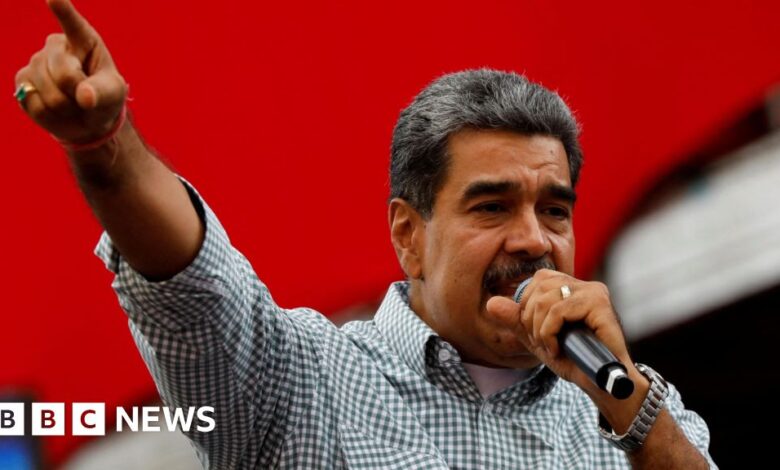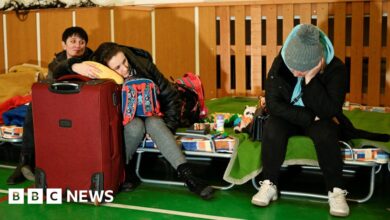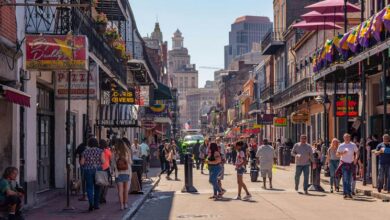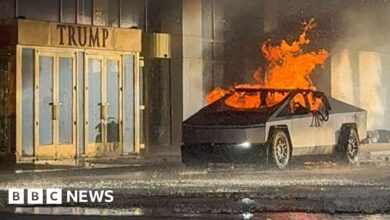US denies CIA plot to assassinate Nicolas Maduro

The United States has rejected Venezuela’s accusations that the CIA plotted to assassinate President Maduro and other senior officials.
Three US citizens, two Spaniards and a Czech have been arrested on suspicion of plotting to destabilise the country, the interior minister said.
Calling the detainees “mercenaries”, Diosdado Cabello claimed that the CIA “was directing the operation” and that hundreds of weapons were seized.
The United States has rejected the complaints made later. Washington has placed 16 senior government officials on its sanctions list.is “completely wrong”.
A State Department spokesperson said one US service member was being held and noted “there are unconfirmed reports of two other US citizens being held in Venezuela”.
Cabello responded that the detainees had been in contact with “French mercenaries” from Eastern Europe and were involved in “a campaign to attack” Venezuela.
He added that “more than 400 rifles were seized” and accused those detained of plotting “to commit acts of terrorism”.
The Venezuelan government said the arrested Spaniards were linked to Madrid’s National Intelligence Center (CNI).
Spanish government sources told local media that the couple were not part of the intelligence service.
“Spain denies and categorically rejects any suggestion that it is involved in political destabilization in Venezuela,” a source told AFP.
The Czech Republic has yet to respond to these claims.
“The CIA is leading this operation and it doesn’t surprise us but they, the Spanish National Intelligence Center, have always been very secretive when it comes to knowing that the CIA is operating in this field,” Cabello said at a press conference on Saturday.
“These two detainees even told us about a group of mercenaries they were looking to bring to Venezuela with the very clear goal of assassinating President Nicolas Maduro, Vice President Delcy Rodriguez, me and a group of other comrades who are leading our party and our revolution.”
The allegations come as the Maduro government is at odds with both the United States and Spain over Maduro’s disputed election victory in July.
Venezuela’s National Electoral Council (CNE), which has close ties to the government, declared Maduro the winner of the vote, but did not release detailed vote counts.
Data released by the opposition showed that their candidate, Edmundo González, was the real winner.
On Thursday, Washington announced sanctions targeting “key officials involved in Maduro’s fraudulent and illegitimate claim of victory and his brutal crackdown on freedom of expression following the election.”
Following the arrest, a State Department official said Washington “continues to support a democratic solution to the political crisis in Venezuela.”
On Friday, Venezuelan Foreign Minister Yván Gil summoned the Spanish ambassador in Caracas after Spanish Defense Minister Margarita Robles describes the Venezuelan government as a “dictatorship”.
Gil said the comments were “rude, interfering and rude” and showed “the relationship between the two countries is deteriorating”.
It happened a few days after González went to Spain to seek political asyluma step that Venezuelan opposition leader María Corina Machado said he took “to defend his freedom, integrity and life”.
Spanish authorities have asked Venezuela for more information about the arrests and the Spanish embassy has requested access to those detained.
Additional reporting by Ruth Comerford and Christy Cooney.




